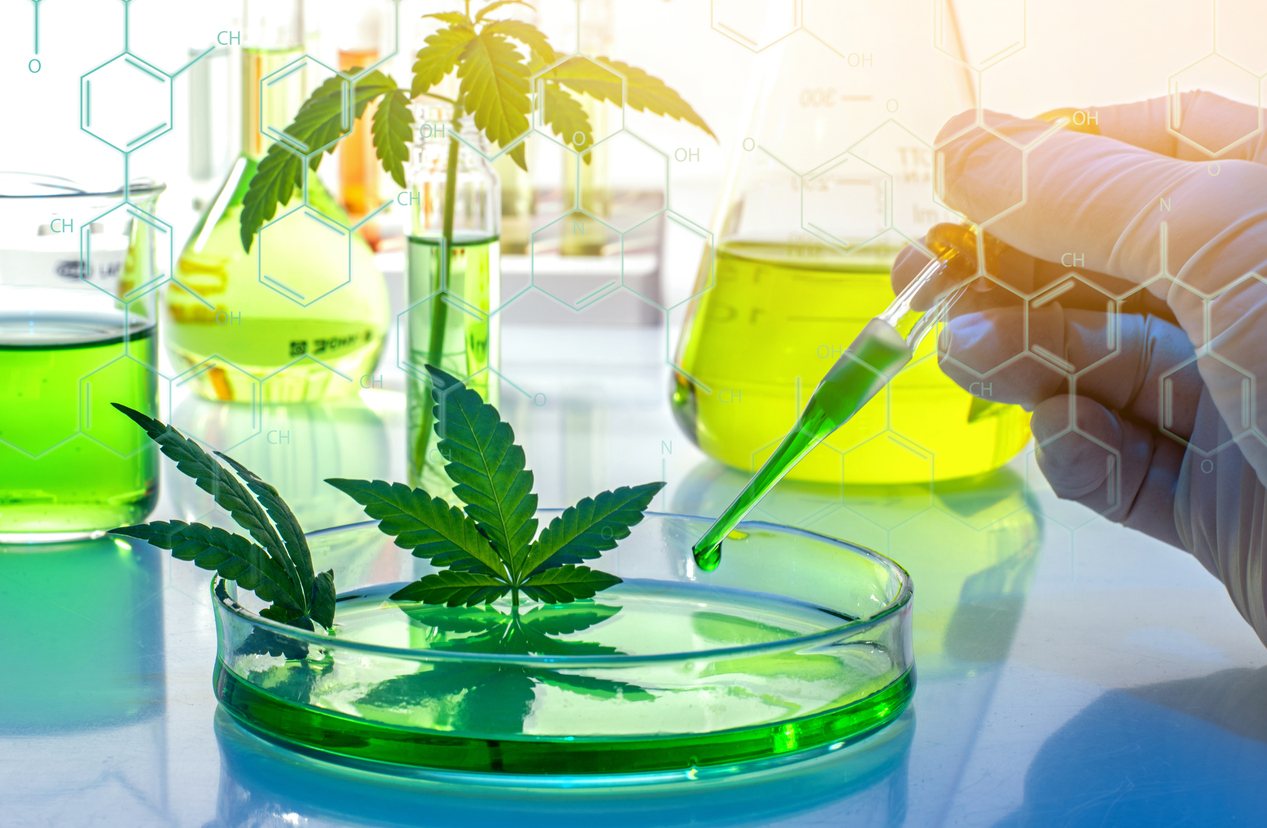Alberto Sainz is a behavorial scientist with a background in psychology and neurosciences and specialized in psychopharmacology of cannabis. Alberto is based in Barcelona, he is part of the Broughton...
How can we enhance CBD product safety standards?
Toxicology

Jan 31, 2024 | Published by Cristelle Santos
Toxicology, Cannabinoids
Ensuring the safety of cannabidiol (CBD) products is crucial to protect public health, promote consumer confidence, and support responsible industry practices. Despite the potential benefits associated with CBD, there are uncertainties regarding its long-term effects, potential drug interactions, appropriate dosage, and the possible presence of contaminants or impurities. Therefore, it is essential to evaluate the adequacy of existing product safety standards and identify potential gaps to establish a solid foundation for the responsible production, distribution, and consumption of CBD products.
Here Cristelle Santos, Consultant Toxicologist at Broughton, shares her thoughts on how the industry can enhance CBD safety standards.
Regulating tetrahydrocannabinol (THC) levels in CBD products is a critical aspect of ensuring consumer safety and legal compliance. THC is the psychoactive compound found in cannabis that produces the characteristic "high" associated with marijuana. While CBD itself is non-intoxicating, the presence of THC in CBD products must be carefully monitored to prevent unwanted psychoactive effects.
A Varied Landscape
Different regulatory markets have varying requirements and permissible limits for THC in CBD products. These requirements are influenced by factors such as the legal status of cannabis and its derivatives, public health concerns, and the intended use of CBD products. While some jurisdictions have embraced CBD and established guidelines, others have implemented more restrictive or ambiguous regulations.
In the United States (US), the regulatory framework for CBD products is complex and evolving. The Farm Bill of 2018 legalized hemp-derived CBD products at the federal level, by removing hemp (defined as cannabis (Cannabis sativa L), and derivatives of cannabis with extremely low concentrations of THC (not more than 0.3 per cent on a dry weight basis) from the definition of marijuana under the Controlled Substances Act (CSA).
Meanwhile, in the EU, CBD products are subject to the Novel Food Regulation. According to the European Food Safety Authority (EFSA), CBD is considered a novel food ingredient, and companies must obtain authorization before placing CBD-containing products on the market.
Regulatory agencies should strive for greater harmonization of CBD regulations across jurisdictions and for the establishment of the same upper safe limits for different cannabinoids. This will facilitate consistent safety standards, labeling requirements, testing protocols, and manufacturing practices, reducing confusion and ensuring consumer protection.
Labeling and Product Claims
Accurate and transparent labeling, along with scientifically substantiated product claims, are crucial for ensuring consumer safety and promoting informed decision-making. Proper labeling provides consumers with essential information about CBD products, including CBD content, dosage recommendations, a list of ingredients, and potential allergens. Additionally, product claims should be supported by scientific evidence and comply with regulatory guidelines to prevent misleading or false information. Differentiating between recreational and medicinal CBD is important in terms of product claims and labeling.
Regulatory bodies play a vital role in setting guidelines for labeling and product claims. They often provide specific requirements regarding font size, formatting, language, and other labeling elements to ensure clarity and consistency across products. Therefore, regulatory agencies should provide clear guidelines on labeling requirements, ensuring accurate and transparent information for consumers. This includes guidelines on CBD, THC, and other cannabinoid content disclosure, appropriate and substantiated health claims, allergen labeling, and child-resistant packaging.
Meanwhile, manufacturers must adhere to these guidelines to provide consumers with accurate and reliable information, enabling them to make informed decisions about their CBD consumption.
Comprehensive Testing Requirements
Ensuring consumer safety requires testing for CBD content and other constituents of the plant or chemicals that are part of the extraction or production process, such as other cannabinoids or terpenes, or other contaminants like pesticides, heavy metals, residual solvents, and microbial contaminants. Regulatory agencies should mandate comprehensive testing requirements for CBD products and clearly define and enforce these to mitigate potential health risks.
Manufacturers must follow specific quality control measures to maintain product consistency and integrity. This includes adhering to Good Manufacturing Practice (GMP) and conducting regular audits to assess compliance with quality standards.
GMP is essential to maintain product safety, consistency, and quality throughout the manufacturing process of CBD products. GMP guidelines cover aspects such as facility cleanliness, personnel training, equipment maintenance, record keeping, quality control procedures, manufacturing, packaging, labeling, and storage protocols.
To ensure the safety of your CBD product, visit the Broughton website to find out more about its toxicological and regulatory consultancy services.
.webp?height=200&name=4%20(2).webp)

